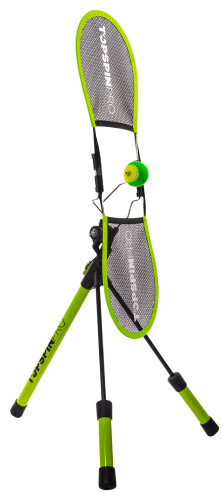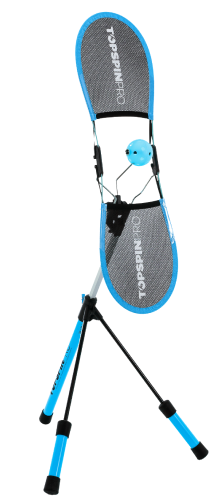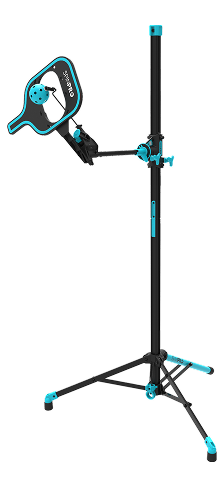 Photo: pixabay.com
Photo: pixabay.com
What we'll cover in this article:
Stay in the loop!
Want to be updated when we publish? Be sure to sign up for our newsletter. No spam, we promise!
How Should I Store My Tennis Racket?
How you store your racket is one of the biggest influences on your racket's longevity. Treat it well and it will last a long time!
Temperature
Always store your racket in a cool, dry place. Extreme temperatures can affect both the string tension and the racket frame. Never leave it in your car for long periods, especially during hot or cold days. Also your racket can suffer from sun damage if left exposed for too long.
Protection
Use a racket cover or a tennis bag to protect it from dirt, dust, and other potential damages. This also helps protect against temperature fluctuations and uv damage. Some rackets come with protective bags, but if yours didn’t, it’s a worthy investment.
Humidity
If you are a die-hard tennis player, it can often be tempting to keep playing in a little drizzle, especially if you have all weather courts. Water and humidity can be detrimental to your racket, especially to the strings. So if you like to play in all weather, perhaps keep a special racket that has more durable strings or an older frame. That way you can keep your best racket in tip-top shape! If you live in an excessively humid environment, silica gel packs in your racket bag can help absorb excess moisture.
How Often Should I Regrip My Racket?
Grip Replacement
Over time, the grip of your racket can become worn out. This can affect your game and can also lead to blisters. Change your grip regularly or when it begins to feel slippery.
Overgrip
Consider using an overgrip. They provide additional cushioning and absorb sweat, prolonging the life of the primary grip. They are also much faster to change and can be done much more easily if on court and mid game. If you are playing regularly, you may need to change your overgrip every week or even each time you play. This is dependent on the individual, how much they sweat and what kind of environment they play in. Someone who plays outdoors will have to change their grip more than someone who plays inside as the balls and therefore their hands pick up more dirt.
Here's a video showing you how to change your overgrip:
How Often Should I Change My Strings?
Regularly check the string tension. Strings lose tension over time, even if you don’t play. Re-string your racket periodically, depending on your frequency of play and playing style.
The general rule of thumb is to change your strings as many times per year as you play per week. So if you play 4 times a week, change your strings every quarter. But, this is ultimately dependent on a number of things, including:
- String type
- Racket type
- How hard you hit the ball
- The climate where you play
- Indoor or outdoor player
- Surface type
How Should I Clean My Tennis Racket?
Not many people clean their rackets, but they can get surprisingly dirty with exposure to sweat plus dirt and fluff from the balls. . Clean your racket frame with a damp cloth to remove dirt and sweat. Avoid using abrasive or harsh cleaners.
It's also easier to clean the racket when the strings are removed, so ask your stringer to thoroughly clean it for you next time you send your racket in. Most string technicians will offer that as a service.
Other Ways You Can Help Your Racket
Edge Guards
These are protective strips that go on the top edge of the racket. They shield the frame from ground impacts during play which is particularly useful if you play on hard courts.
Grommets
These are the plastic pieces through which the strings are threaded. They prevent the strings from rubbing directly against the frame. Replace worn-out or damaged grommets to extend the life of your strings and frame.
Avoid Hitting or Slamming
Tennis rackets are sturdy, but they’re not indestructible. Avoid hitting the ground or net post with your racket in frustration. This can lead to frame damage, broken strings, or an imbalanced racket.
Rotate Between Rackets
If you play frequently, consider having two rackets and rotating between them. This ensures that the wear and tear are spread out, and it also provides a backup if one needs re-stringing.
TOPSPINPRO BEGINNER COURSES
We use the latest neuroscience in our TopspinPro Online Courses. Check them out for some in depth help with developing your shots:
Summary
Like any equipment, periodic reviews of your racket's condition can go a long way. This involves checking for any visible damages, ensuring the grip is fresh, and replacing strings when needed. Consider doing this once every few months or more frequently if you’re an avid player. Like with any craft, maintaining your tools will make you a better performer!
FAQs
-
How should I store my tennis racket?
Always store your racket in a cool, dry place to avoid damage from extreme temperatures. Use a racket cover or tennis bag to protect it from dirt, dust, and UV damage.
-
How often should I regrip my racket?
Change your grip regularly or when it begins to feel slippery to avoid blisters and maintain performance. Consider using an overgrip for additional cushioning and sweat absorption, which can be replaced more frequently.
-
How often should I change my strings?
Check the string tension regularly and re-string your racket based on your frequency of play. A general rule is to change strings as many times per year as you play per week, but factors like string type, climate, and playing style also matter.
-
How should I clean my tennis racket?
Clean your racket frame with a damp cloth to remove dirt and sweat, avoiding abrasive cleaners. It’s easier to clean when strings are removed, so ask your stringer to clean it during re-stringing.
-
What are other ways to help my racket last longer?
Use edge guards to protect from ground impacts, replace worn-out grommets, avoid hitting the ground or net post, and rotate between rackets to spread out wear and tear.
Links Related to This Article
Enjoyed this article?
Be sure to sign up for our newsletter and we'll keep you up to date about new posts


